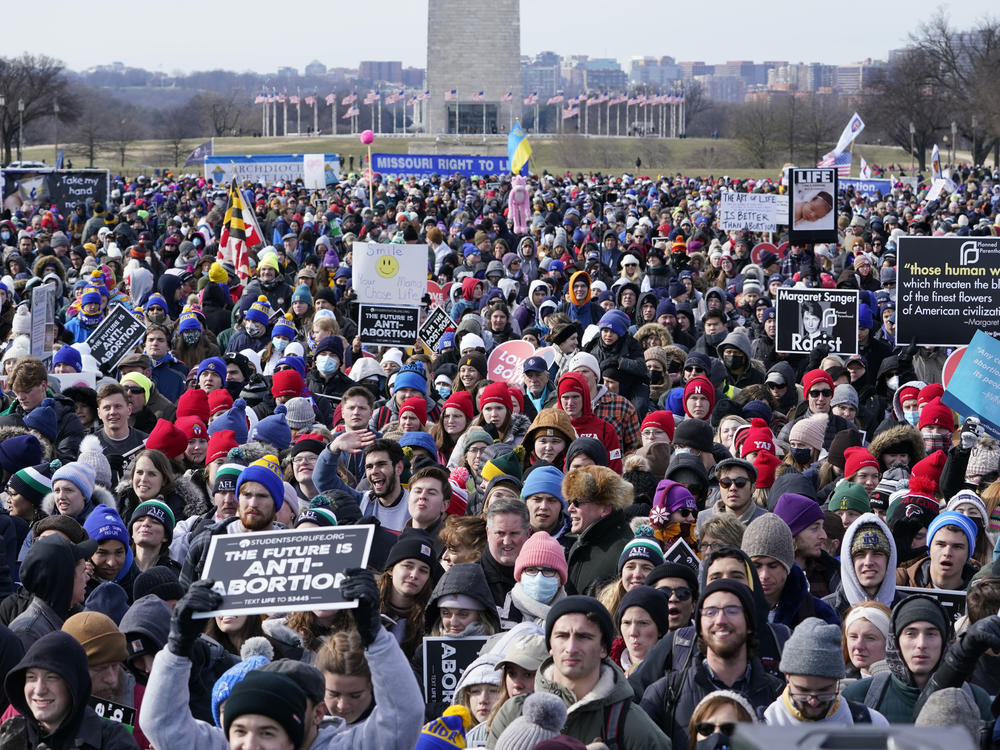Section Branding
Header Content
Thousands gather for the March for Life protest, as Supreme Court weighs Roe v. Wade
Primary Content
Temperatures hovered at around 20 degrees as thousands gathered in Washington, D.C., for the 49th annual March for Life protest.
The march occurs around the anniversary of the Supreme Court's Roe v. Wade decision: Jan. 22, 1973. And this year, there's a growing sentiment among the protesters that it could be the last march before Roe is possibly overturned.
"We are hoping and praying that this year, 2022, will bring us historic change for life," March for Life president Jeanne Mancini said. "Roe is not settled law," she said to cheers from the crowd.
One attendee at the march, Macy Butler, a retired teacher from Silver Spring, Md., tells NPR she had "a little hope" this year that abortion would no longer be protected on a federal level.
"There's hope. There's a little hope that maybe it'll go back to the states," she said. "I feel a little more optimism this year than I've had."
"I did it in the past just because I wanted [to say] 'We're here, we're here. We still believe abortion is wrong.' But now I'm like, wow, maybe something will change for the better," Butler, 67, said.
Polling consistently shows that a majority of Americans support the right to an abortion. The belief isn't always divided evenly across political parties. An NPR/PBS Newshour/Marist poll from September 2021 showed that after Texas passed its extremely restrictive abortion ban, 59% of Republicans opposed key tenets of the bill.
And a recent poll from CNN, conducted from Jan. 13-18, says that 69% of Americans do not want to see Roe v. Wade completely overturned. And if Roe were overturned by the Supreme Court, 59% would like to see abortion protections passed on a state level.
Some states have already started to codify the protection. Earlier this month, New Jersey became the latest state to sign a measure that gives people in the state the "fundamental" right to terminate a pregnancy.
Pro-life protesters are focused on the upcoming Supreme Court's decision but are already preparing for future pieces of abortion protection legislation on the state level, too.
"If Roe falls, the battle lines will change. But make no mistake, the fight for life will need to continue in the states and here in D.C.," Mancini said.
As the Supreme Court weighs its decision, the White House is reaffirming its commitment to protecting and defending Roe "with every tool we have," press secretary Jen Psaki said in Friday's briefing. She specifically mentioned working with Congress to pass the Women's Health Protection Act, to codify abortion protections into law.
"This is a moment for us to recommit to strengthening access to critical reproductive health care, defending the constitutional right established by Roe and protecting the freedom of all people to build their own future," she said.
Copyright 2022 NPR. To see more, visit https://www.npr.org.

